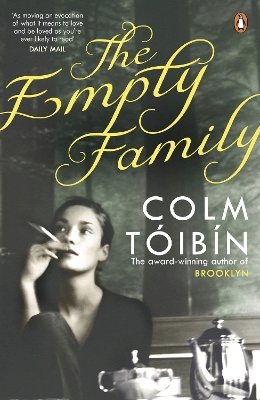
The Empty Family: Stories
Colm Tóibín
In the captivating stories that make up The Empty Family Colm Tóibín delineates with a tender and unique sensibility lives of unspoken or unconscious longing, of individuals, often willingly, cast adrift from their history.
'I imagined lamplight, shadows, soft voices, clothes put away, the low sound of late news on the radio. And I thought as I crossed the bridge at Baggot Street to face the last stretch of my own journey home that no matter what I had done, I had not done that.'
From the young Pakistani immigrant who seeks some kind of permanence in a strange town to the Irish woman reluctantly returning to Dublin and discovering a city that refuses to acknowledge her long absence each of Tóibín's stories manage to contain whole worlds: stories of fleeing the past and returning home, of family threads lost and ultimately regained.
'Exquisite . . . The chief reason to read these stories is the peculiar power of Colm Tóibín's prose' Telegraph
'Astonishingly precise, depicting complex and conflicted states of mind with rare clarity' Observer
'Beautifully observed' Sunday Times
Product Details
About Colm Tóibín
Reviews for The Empty Family: Stories
The Times
Always deeply moving, the stories here - like the surf-washed pebbles on that Wexford beach - will be read for meaning and enjoyed for their shape and sound for ages to come
Tribune
It's a collection that will only further fuel Tóibín's ascent through English fiction
Independent on Sunday
Exquisite . . . The chief reason to read these stories is the peculiar power of Colm Tóibín's prose
Telegraph
Astonishingly precise, depicting complex and conflicted states of mind with rare clarity
Observer
Beautifully observed
Sunday Times
Tóibín's deceptively straightforward style continues to manage somehow to encompass both lucidity and ambiguity, precision and poetry
Irish Times
Exquisite
Metro, Fiction of the Week
These stories are always intensely interesting and sometimes profoundly provocative
Irish Independent
Perfect; and as good as the best of William Trevor, than which there can be no higher praise
Scotsman
